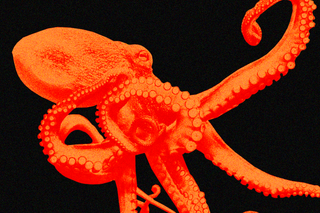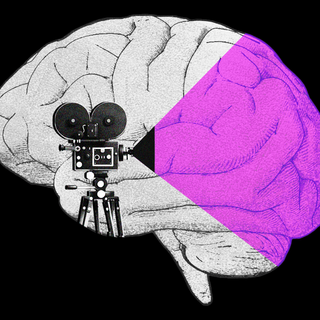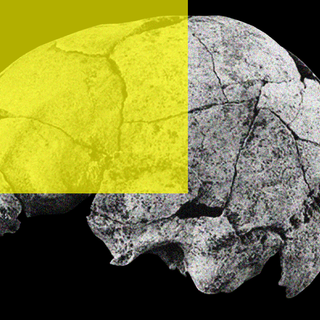
The World’s First Octopus Farm Raises Ethical Concerns Over Animal Sentience
“Octopuses are extremely intelligent and extremely curious. And it’s well known they are not happy in conditions of captivity.”

Cephalopods are notoriously intelligent creatures. Octopuses, in particular, are widely considered to be the world’s most intelligent invertebrates. They “live outside the brain-body divide” — representing “an independent experiment in the evolution of large brains and complex behavior,” according to philosopher Peter Godfrey-Smith. Responding to stratospheric levels of demand for seafood, however, a Spanish company is all set to soon open an “octopus farm” — the world’s first — and has stirred up considerable ethical debate.
Nueva Pescanova, the company that is reportedly funding the farm to the tune of 65 million Euros, seemingly perfected the conditions required for industrial-scale breeding of octopuses ahead of other companies attempting the same. According to Reuters, the company is set to produce 3,000 tons for domestic and international food chains.
But this is an ethical minefield. For one, octopuses don’t do well under captivity — previous attempts to “farm” them for industrial breeding have resulted in aggression, self-mutilation, and even cannibalism. “When octopuses are in captivity, and too many of them are introduced to the same aquarium or an on-growing cage… they may resort to cannibalism as a means of defending their territory,” Live Science reported in 2014.
“Octopuses are extremely intelligent and extremely curious. And it’s well known they are not happy in conditions of captivity,” Raul Garcia, head of the WWF’s fisheries operations in Spain, told Reuters.
Related on The Swaddle:
Octopus Species Has Adapted To Survive in Higher Level of Ocean Acidity, Researchers Find
Handlers have long narrated tales of octopuses’ intelligence manifesting in all too human ways. “When he’s an orangey-brown, it’s more like an active or playful kind of feeling. Speckly is more curious and interested. So he’ll be swimming around orange and brown, then he’ll come over and sit beside you and go all speckly and just look at you, which is quite amazing… When you look at him, and he looks at you, you can sense there’s something there,” Stacey Tonkins, who works at an aquarium, told BBC News.
The issue at hand, now, is whether farming the creatures will be able to provide humane conditions for their lives’ duration. Experts tend to lean towards a no: it is nigh on impossible for commercial farms to replicate their natural habitats. To do so would mean creating solitary, sea-bed-like conditions — a far too expensive, and therefore, not profitable, endeavor.
But with such sentient creatures at hand, ethicists find the idea of breeding them at industrial levels horrific, to say the least. It’s why the UK government designated them — along with crabs and lobsters — as sentient beings that can feel pain, and thus deserve welfare protections. “The science is now clear that [these animals] can feel pain and therefore it is only right they are covered by this vital piece of legislation,” Animal Welfare Minister Lord Zac Goldsmith said in a press release.
The legislation was based on a report published by researchers at the London School of Economics. They found strong evidence for the fact that octopuses can feel joy, excitement, pain, and distress. “When you respect something as a sentient being, the sort of principles you accept for other sentient beings have to apply… Humane slaughter requires training. These are principles people readily grant for any vertebrate,” lead author Jonathan Birch, an expert in the philosophy of biology at the London School of Economics, told NBC.
But the debate around sentience and consumption is also fraught cultural implications. It has been known for a while that vertebrates like pigs, for instance, are also highly intelligent. But experts argue that firstly, pigs have been domesticated for centuries whereas octopuses are wild animals. Second, the argument to extend a harmful tradition toward other species is not the way forward. Moreover, octopuses are not essential for food security at the moment.
Related on The Swaddle:
Octopuses Can Dream, But Only for a Few Seconds: Study
The report concluded that “high-welfare octopus farming was impossible” recommended that the UK government “consider a ban on imported farmed octopus.” According to the BBC, Nueva Pescanova has not furnished details on the conditions the octopuses will be kept in — details about their enclosures, food, and killing methods are all reportedly secret.
The trouble is that European Union laws regulating animal welfare won’t protect the octopuses from inhumane conditions once the farm opens, since it applies only to vertebrates so far. Moreover, farming octopuses will be an added strain on fishing to feed the octopuses — adding to overfishing when aquaculture already contributes to half of the consumption of all caught fish.
Above all, octopuses share striking similarities with humans in terms of intelligence. “We have an example of an organism that has evolved to have an intelligence that is extremely comparable to ours… This is potentially how it would look if we were ever going to meet an intelligent alien from a different planet,” Jakob Vinther, from the University of Bristol, told BBC News.
Rohitha Naraharisetty is a Senior Associate Editor at The Swaddle. She writes about the intersection of gender, caste, social movements, and pop culture. She can be found on Instagram at @rohitha_97 or on Twitter at @romimacaronii.
Related


What Goes On in People’s Brains While They’re Dying
